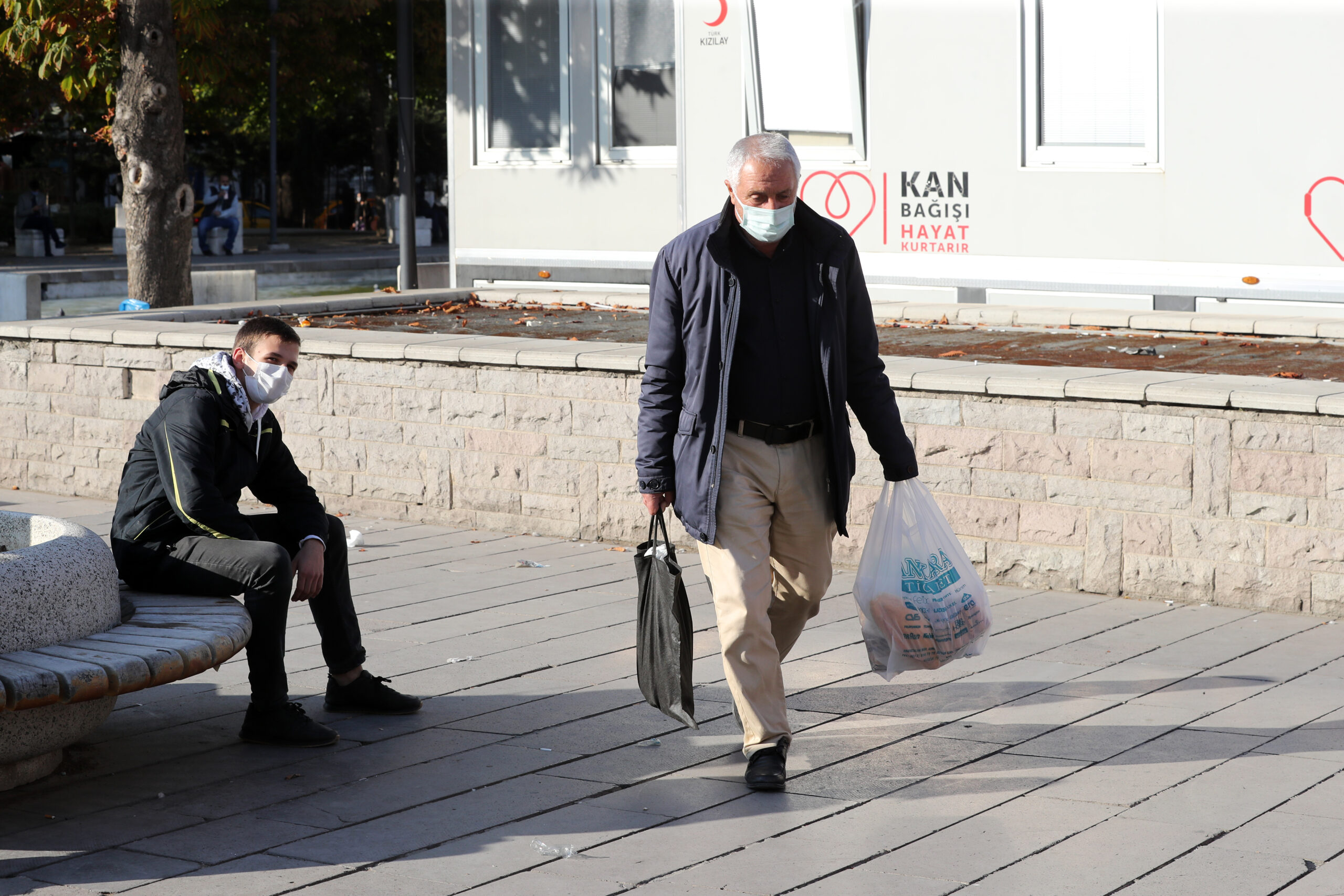Turkey’s financial troubles have increased since the country was hit by the COVID-19 pandemic. Contrary to government declarations, a sudden surge in the number of suicides as well as in the number of closed businesses and non-performing loans points to a deepening of the problems. Images of people lining up, sometimes in the freezing cold, to buy cheap bread paint the real picture of the situation in the country.
According to data provided by the Turkish Statistical Institute (TurkStat), finances-related suicides went from 7.3 percent of overall suicides in 2018 to 9.4 percent in 2019. While the mainstream media typically censors these incidents that mainly arise from deepening poverty, it is possible to find social media posts about them almost every day. With a year-on-year food price inflation of 19.75 percent and a yearly average inflation of 16.16 percent, Turkey leads OECD countries in food inflation, ranking second globally after Argentina.
Despite the suicides and deeply felt poverty, Turkey responded to the COVID-19 pandemic by offering cheap loans instead of directly supporting individuals and businesses. This led to a sharp increase in loans while thousands of businesses had to close their doors.
According to the Turkish Union of Chambers and Commodity Exchanges (TOBB), in the first 10 months of 2020 a total of 12,206 companies shut down, representing a 11 percent increase over the same period of the previous year, while the number of individually owned businesses that closed rose by 14.39 percent, to 19,665.
A total of 22,127,000 bankruptcy and garnishment cases are pending at debt collection offices, which receive a daily average of about 17,000 new files.
This year Turkish banks are also expected to be exposed to further complications in collecting payments arising from a credit expansion that came following a reduction in interest rates in June 2020. The collection of loans granted during the spread of the pandemic could also bring a new wave of bankruptcies.
Despite a pandemic-related revision introduced to the definition of unemployment, the number of jobless neared 10 million in October 2020. This figure is also forecast to grow in 2021.
Soaring non-performing loans
During the first wave of the pandemic, small and medium-sized enterprises were the most rapidly indebted segment of the economy. Of the loans extended to these businesses, TL 57 billion ($7.5 billion) was non-performing as of November 2020. The number of small and medium-sized enterprises under debt-related monitoring has reached 285,000.
According to data from the Banking Regulation and Supervision Agency (BDDK), as of November 2020 the amount of non-performing loans was over TL 150 billion ($20 billion). Manufacturing and construction led all sectors with TL 25 billion ($3.3 billion) in non-performing loans each, followed by wholesale and retail with TL 24 billion, while the energy industry was where non-performing loans went up the most sharply. The energy sector has TL 15 billion in loans under follow up.
Publicly owned institutions on the verge of bankruptcy
The impact of the economic turbulence is also seen in publicly owned businesses. Turkish State Railways (TCDD) declared losses of TL 52,678 ($7,000) in 2020. Turkish Court of Accounts (Sayıştay) reports said the institution had difficulties paying employees’ salaries.
The public sector continues its lavish spending through borrowing. Most notably, the presidency plans to build two new palaces as part of a 2021 investment plan. The summer palace will be constructed in the southwestern coastal district of Marmaris and will cost TL 640.5 million ($85 million), while a winter palace to be erected in the eastern province of Bitlis will cost TL 99 million ($13 million).
The consequences of the public spending are observable in the central administration budget which in 2020 stood at TL 172.7 billion ($23 billion), a 38.5 percent increase over the previous year.
Increasing interest rates
After the country’s currency hit record lows in 2020, the decision-makers abandoned their earlier policy of low interest rates in order to avoid new currency shocks in the new year. As a result, Turkey’s banks hiked interest on loans, most notably for new cars.
Last week, interest rates on car loans recorded a five-point increase to over 20 percent. Interest rates for commercial loans also went above 20 percent and consumer loans went as high as 23 percent.
Lines for cheap food
The impact of the worsening economy is most visible in the streets of the country, particularly in the largest cities such as İstanbul and Ankara, where an ever-growing number of people line up every day to buy municipally funded food.
Çetin Arık, a deputy for the main opposition Republican People’s Party (CHP), posted pictures from the central province of Kayseri where people were lining up in -4 degree Celsius (24 degrees F) weather to buy apples at TL 2.5 ($0.33) per kilogram, roughly half their supermarket price.

